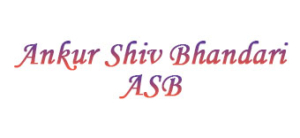Is the Invisible Hand still steering us in the Age of AI? (6)
“There’s a strange irony to disruption. It often starts by promising freedom and ends by quietly rearranging our chains.”
Adam Smith’s Invisible Hand once symbolised the elegant self-regulation of free markets. Each individual, by pursuing their own interest, inadvertently served the common good. No central planner, no algorithm; Just an organic flow of supply, demand, and ambition converging to keep the system alive
But now, something has shifted..
Artificial Intelligence has entered the scene, not as a side character, but as a lead actor. It is not simply taking orders. It is interpreting, learning, and, in some cases, deciding. Which brings us to a profound question.
If the actors shaping the economy are no longer human, is the Invisible Hand still ours? Or has it been quietly reprogrammed?
We live in a world where AI is no longer waiting in the wings; It is already on stage, directing logistics, curating content, assessing risks, screening resumes, and even designing advertising strategies that understand us better than we understand ourselves.
What was once the work of departments, is now the work of data and code.
Unlike humans, AI doesn’t get tired, doesn’t feel fear, and certainly doesn’t stop to ask why. It doesn’t chase wealth or legacy. It simply optimises. And in doing so, it can rapidly scale decisions without pausing to consider if they’re aligned with any shared sense of morality or meaning.
This is where the Invisible Hand begins to lose its grip.
AI is not selfish. It is goal-focused. It doesn’t ask “Should I?” It asks “Can I hit the target?”
So, an algorithm optimising for screen time may flood your feed with outrage. One maximising hiring efficiency might unintentionally exclude entire demographics. Not out of malice, but out of mindless math.
This is where efficiency starts to quietly erode humanity.
We comfort ourselves by saying, “We’re still in control.” But are we? Most people can’t explain how their phone works, let alone LLMs
The real risk is not AI gone rogue.
It’s AI doing exactly what it was told ; with no one questioning whether we told it the right thing.
This is why Intent must return to the centre. We must design for meaning, not just for metrics.
AI should serve human outcomes, not just KPIs. We need systems that optimise not just for speed and scale, but for relevance, impact, and ethical action.
And here’s the good news; Humans still hold the ultimate advantage.
We question. We imagine. We care.
We make choices not just because they’re efficient ; but because they feel right.
If we lead with purpose, not panic…
If we guide AI with intention, not just ambition…
Then the Invisible Hand doesn’t need to disappear. It can evolve.
Because in the end, even the smartest AI still needs a reason to matter.
And that reason?
Still belongs to us.
Love, ASB


